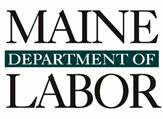|
|
|
The COVID-19
Edition for Thursday, July 23, 2020 |
To view this edition of Impact online,
click here. |
|
Welcome to
your COVID-19 Impact newsletter! |
|
|
As a valued member of
the Maine State Chamber of Commerce, we plan to stay in touch with you
several times each week through emails like this one and on Facebook and Twitter, until the pandemic passes. We
intend to provide you with the latest state and federal information, as well
as highlighting the creativity and innovation that is occuring here in Maine
during this unpredictable and rapidly changing time. To assist you in
navigating the uncertainties ahead, we have created a diverse and
comprehensive collection of web-based resources to help you take care of yourself and your family, your employees, your business, and your community. |
|
|
Do you have a question? ASK THE EXPERTS. |
We are here to
help in any way we can! |
|
Dana Connors: Shipbuilding
Makes Maine Work |
|
The BIW strike is making it even harder for Maine to
recover from the pandemic. Compromise is crucial. |
|
Earlier today, the Portland Press Herald published this Special Feature from Dana
Connors, president and CEO of the Maine State Chamber of Commerce. We are
sharing an excerpt from it below, but encourage you to read it here in its entirety. |
|
As one of our state's largest
employers, with a $375 million annual payroll, BIW has provided good-paying
jobs for thousands of Mainers for more than 130 years. And the company's
operations have a ripple effect on our economy, as it buys goods and services
from almost 300 suppliers across the state. BIW has invested more than $700
million in its facilities since 1996 and spent $125 million on direct goods
and services from Maine suppliers in 2018 and 2019 alone. Those are vital
investments for the business and for sustaining
many Maine families and communities. BIW's operations have been
particularly important to Maine's economy during this pandemic. While many
other businesses were shuttered, BIW remained open because of its role in the
nation's essential defense infrastructure. That meant paychecks continued to
go out to BIW workers and orders continued to go out to suppliers. In fact,
to encourage social distancing at the yard, the company purchased more than
250,000 meals for its employees from local restaurants, keeping many of those
businesses from going under when no other customers were coming through their
doors. BIW also helped Guilford-based
Puritan Medical Products speed up production of its COVID-19 sterile testing
swabs, which are facing a nationwide shortage. The company built and
delivered 30 machines to speed up swab production. BIW's unique combination of
skilled employees and manufacturing facilities has delivered a critical
component needed to increase nationwide COVID-19 testing capacity. |
|
Maine Employers Could Be
Taxed By State On Federal Emergency Loans |
|
Businesses and nonprofits will owe state income tax on the
forgiven portion of Paycheck Protection Program loans unless legislators
change state law. |
|
Yesterday, the Portland Press Herald reported that Maine
businesses and nonprofits could be saddled with heavy
tax bills for taking forgivable federal emergency loans in
the early days of the pandemic unless legislators act to bring the state's
tax laws in line with federal statutes. Maine employers have taken out more
than $2.2 billion in Paycheck Protection Program loans since April, with many
expecting the loans would be forgiven - converted into grants - if they met
program rules. Forgiven portions of loans are
not subject to federal income tax under the CARES Act, which created the loan
program. But employers still will have to pay Maine income tax - up to 7
percent - on the forgiven portion of the loans unless lawmakers pass an
amendment to state law. More than 27,000 Maine
employers took out loans for as much as $10 million and as little as a few
thousand dollars through the program. Its intent was to keep workers on the
payroll and basic business needs covered until pandemic conditions eased and
normal business resumed. If employers spend at least 60 percent of the loan
on payroll and meet worker retention and other benchmarks, the full amount of
the loan will be forgiven. But an unexpected tax payment next year on the
proceeds of forgiven Paycheck Protection Program loans could further damage
small businesses crawling their way out of the recession triggered by the
pandemic. |
|
MDOL to Update Benefits
for Self-Employed and Other PUA Recipients |
|
On July 23, the Maine
Department of Labor (MDOL) announced that it is ready to update
the weekly benefit payments for Maine people currently
enrolled in the federal Pandemic Unemployment Assistance (PUA) program. This
involves matching current tax information to individual claims to pay Maine
people their full benefit, retroactive to the date of their PUA eligibility.
This will happen in two
phases. Launched in Maine in May, PUA
is one of three new federal unemployment programs created in response to the
COVID-19 pandemic. It covers workers previously ineligible for unemployment,
such as the self-employed, and is available through the week ending December
26, 2020. To expedite payments to
Mainers during COVID-19, MDOL approved the minimum state PUA benefit of $172
per week for all those eligible for PUA, pending the matching of updated tax
information. The PUA minimum benefit amount is federally required to be half
of the state's average weekly benefit. Self-employed individuals
whose net income, or other PUA recipients whose gross wages in 2019 were
below $15,224 will continue to receive the minimum benefit of $172 a week,
and do not need to upload any information. Individuals with higher earnings
are eligible for a maximum benefit under the PUA program of up to $445 or
$462 per week, depending on whether their claim was filed before or after
June 1. Reminder: The Federal Pandemic
Unemployment Compensation program, or the additional weekly $600, ends with
benefit payments for the week ending July 25, 2020. |
|
Maine Department of Labor
Releases Unemployment Compensation
Claims Data For Week Ending July 18 |
|
|
For the week ending July 18,
the Maine Department of Labor recorded about 2,200 initial claims filed for
state unemployment insurance, and 1,600 initial claims filed for federal
Pandemic Unemployment Assistance (PUA). These claims represent about 2,300
individuals filing an initial claim. About 59,900 weekly certifications, or
continued claims, were filed last week for state unemployment. In addition,
about 25,000 weekly certifications were filed under PUA. Weekly
certifications must be filed by claimants every week in order to continue to
receive unemployment benefits. Between March 15 and July 18,
the Maine Department of Labor has paid out over $1.17 billion in federal and
state unemployment benefits. By comparison, the Department paid out less than
$74 million in unemployment benefits in all of 2019. The Department has
handled approximately 174,600 initial claims for the state unemployment
program and 81,900 initial claims for the Pandemic Unemployment Assistance
(PUA) program. There have been about 1.77 million weekly certifications
filed. Claims data is preliminary and subject to revision. Fraud Update: The Maine Department of Labor
continues its careful review of all claims as it investigates unemployment
imposter fraud. During the week ending July 18, the Department cancelled
about 1,300 initial claims and 195 weekly certifications that were determined
to be fraudulent. To date, the Department has received about 20,000 unique
reports of unemployment imposter fraud. This number does not include the
duplicate reports that had been included in previous weeks. The Department
has also reinstated almost 15,000 claims to legitimate claimants that had
been flagged for potential fraud. The Department encourages
anyone who believes that someone else has used their or their employees
personal information to file a fraudulent unemployment application to notify the Department
immediately. The investigation is ongoing, and new incidences of potential
fraud are identified every day. |
|
|
Thursday, July 23 | The Bottom Line Podcast |
|
|
with Carl Carlson and
Steve Cox, owners of ServiceMaster of the Lakes Region |
|
|
|
Carl Carlson and Steve Cox,
owners of ServiceMaster of the Lakes Region, were this week's special guest
on The Bottom Line
podcast. They joined The Bottom Line
co-host John Williams of Williams Broadcasting to discuss the challenges of
owning and sustaining a small business during the continuing COVID-19 pandemic,
while also providing essential services to homes and businesses throughout
their area of coverage, while trying to maintain a functioning workforce. To
listen to the archived recordings, please visit The Bottom Line page on the Maine State Chamber's
website. In addition, The Bottom Line
podcast can be heard on iTunes, iHeart Radio, Soundcloud, Stitcher Radio,
Spotify and radio.com. |
|
Maine DHHS Announces Four
Additional "Swab and Send" COVID-19 Testing Sites |
|
Department also awards $1 million to boost rural hospital
lab capacity and opens second round of Keep Maine Healthy grants for
municipalities |
|
The Maine Department of Health
and Human Services (DHHS) announced earlier this week that four
additional COVID-19 "swab and send" testing sites, the
award of $1 million in federal funding to rural hospitals to increase their
labs' capacity to process COVID-19 tests, and a second round of grants to
municipalities under the Keep Maine Healthy Plan to support local COVID-19
public health, education, and prevention efforts. DHHS is finalizing agreements
this week with four additional "swab and send" sites, in addition to the 18
sites announced
last week, bringing the statewide total to 22. The sites - City of
Westbrook; Redington-Fairview General Hospital, Skowhegan; Penobscot Valley
Hospital, Lincoln; and, York County Community Action Corp. / Nasson Health
Care, Sanford - will send samples to the Maine CDC's Health and Environmental
Testing Laboratory (HETL) for testing, strengthening access to safe and
accessible testing for residents, tourists, seasonal workers, and other
visitors to Maine. They will offer specimen collection free of charge to any
individuals who believe they may have COVID-19 or could have been exposed to
the virus, with or without symptoms, as defined under the DHHS
Standing Order. The sites operate under several models, including drive
up, drive through, mobile, and office settings. They typically require an
appointment. Some of the swab and send
sites are already in operation while others are coming online. As part of the
Administration's vast
expansion of testing capacity announced last month, DHHS
formally invited applications that will use federal
grant funding to support the establishment of these specimen collection
sites and testing of their samples at HETL. |
|
King, 36 Senators Push for
Significant, Flexible Funding for State and Local Governments in Upcoming
Coronavirus Relief Package |
|
U.S. Senator Angus King and 36
of his Senate colleagues urged Senate Majority Leader Mitch McConnell (R-Ky.)
to support the funding
levels for state and local governments that were included in the
HEROES Act passed by the U.S. House of Representatives over two months ago,
as well as the legislation's funding flexibility provisions. The HEROES Act
included $500 billion for states, $375 billion for local governments and $20
billion each for territories and tribal lands. "Providing additional funds to state and local governments will ensure that jurisdictions have the financial resources to fund first responders, and the life-saving work done in our public hospitals and by public health departments in communities large and small. Existing funding is not enough for jurisdictions grappling with these extraordinary shortfalls. Governors of both parties may be forced to balance their budgets by cutting education funding for thousands of school districts and slashing funding to support the millions of Americans who reside in nursing homes or receive care in home and community-based settings," the Senators wrote in the letter. "It is essential that the federal government provide fiscal support for those who are responding directly to and are most affected by this unprecedented health and economic crisis." As state and local governments
report enormous deficits and anticipated cuts to their budgets, this will
invariably affect such services as public schools, social services and health
departments, with widespread economic consequences. Local and state
governments expect cuts in services to local health departments which employ
essential workers during the COVID-19 pandemic, as well as child welfare
workers, social workers, firefighters and more employees. Many county and
state governments have been forced to furlough workers due to the pandemic,
and without funding, these furloughs could become permanent job losses.
Decreased local government spending may lead to a $344 billion decrease in
economic output and 4.9 million fewer jobs. |
|
Collins, Golden Propose
Bipartisan Plan to Help Loggers, Timber Haulers Weather COVID-19 Economic
Crisis |
|
Under lawmakers' bill, logging & hauling businesses
that have experienced losses of 10 percent or more would qualify for direct
payments from USDA In Maine, timber harvest expected to be down over 20
percent in 2020 due in large part to COVID-19, Androscoggin Mill explosion |
|
Earlier this week, U.S.
Senator Susan Collins,
Congressman Jared Golden,
Congressman David Rouzer (NC-07), and Senator Tina Smith (D-MN) introduced
bipartisan, bicameral legislation to provide
relief to family logging and log hauling businesses that have
been seriously impacted by COVID-19 and the resulting economic crisis.
Senator Angus King (I-ME) is a co-sponsor of the bill. The lawmakers'
bipartisan bill would establish a new program at the U.S. Department of Agriculture
(USDA) to provide direct payments to timber harvesting and hauling businesses
that can demonstrate they have experienced significant economic hardship
compared to the previous year. The logging industry has experienced a steep
decline in demand for wood fiber since the coronavirus pandemic began,
leading to an estimated 20 percent or more drop in the timber harvest this
year. "Throughout Maine's history, our forest products industry has created good-paying jobs, driven local economies, and sustained rural communities," said Senator Collins. "This industry was already facing significant headwinds due to a changing 21st century economy and unfair trade practices, as well as the explosion at the Androscoggin Mill in Jay and the shutdown of the paper machine at Sappi in Westbrook. COVID-19 has only compounded these challenges. Maine's family logging and log hauling businesses need our support. Our bipartisan bill would provide critical financial assistance to the skilled professionals who work in this industry to help them get through this difficult period." "Logging has provided good jobs and supported rural communities in Maine for generations," said Congressman Golden. "But today, our loggers and truckers face two major challenges they have no control over: sinking demand from the coronavirus recession and a disruption in the market following the accident at the mill in Jay. Congress has recognized the unique role farmers and fishermen play in their rural communities, and taken action to provide relief funds to those industries. Loggers are taking a serious hit and deserve the same support. I'm proud to work across the aisle with Congressman Rouzer, Senator Collins, and Senator Smith to help our loggers and log haulers make it through these difficult times." The program envisioned in
Collins and Golden's bill is modeled after the USDA's Coronavirus Food
Assistance Program, which has been providing direct relief to growers and
producers experiencing dramatic drops in prices and overall business activity
due to the pandemic. Specifically, the legislation would direct the Secretary
of Agriculture to provide payments to eligible logging businesses that have
experienced at least a 10 percent loss in revenues from January through July
2020 as compared to the same timeframe last year. Those who qualify would
receive direct payments equal to 10 percent of their gross revenue from
January through July of last year, and would only be permitted to use the
funds for operating expenses, including payroll. |
|
To advertise in
the COVID-19
Impact, please contact Melody Rousseau |
||
|
Thank you for |
||
|
|
||
|
|
|
|
|
TO
UNSUBSCRIBE, CLICK HERE. |
NOTICE: In an ongoing effort to thwart
the activities of online hackers, the Maine State Chamber |






.png)

